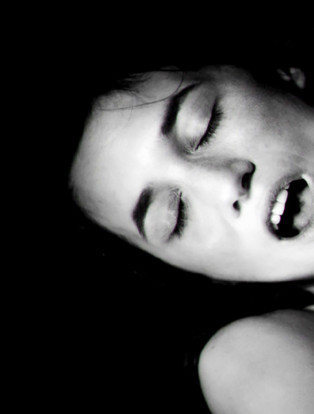Isabelle Huppert
France’s ever-alluring, magnificent sphinx

An extraordinary star in extraordinary films: in her 63 years, Isabelle Huppert (pronounced ew-PAIR) has made more than 100 movies (not to mention all the TV and theater she has done), and has worked with many of the great directors of her generation. She made six films with Claude Chabrol, the French Hitchcock, a master of latent evil: Violette (1978), Story of Women (1988), Madame Bovary (1991), La Cérémonie (1995), The Swindle (1997) and Comedy of Power (2006). She made two with the legendary director-actor duo, Bertrand Tavernier and Philippe Noiret—The Judge and the Assassin (1976) and Coup de Torchon (1981). She made two with New Wave icon Jean-Luc Godard—Every Man for Himself (1980) and Passion (1982). With the German director Michael Haneke, she made The Piano Teacher (2001), a brutal classic of sexual obsession, and Amour (2012), an unsentimental take on a loving elderly couple. With the American director Michael Cimino, she made Heaven’s Gate (1980), the infamous fiasco or work of epic genius (depending on whom you ask) that brought down the studio United Artists. She starred in three remarkable films with women directors, Diane Kurys’s Entre Nous (1983), about Jews in Occupied France; Claire Denis’s White Material (2009), about an African coffee farmer; and Catherine Breillat’s Abuse of Weakness (2013), about a filmmaker who has a stroke and is then conned out of her life’s savings by a sexy man. The list of Huppert’s films goes on and on, and it’s filled with gems, from Going Places, the lowlifes-on-the-run feature she made with Gérard Depardieu when she was 21, to the seven (count ’em) features she has lined up for release in 2017.
Huppert was born in Paris and grew up in the suburb of Ville-d’Avray. Her mom was an English teacher (and Isabelle is certainly fluent herself) and her dad was a safe manufacturer, descended from Hungarian Jews who converted to Catholicism. She started acting at an early age, and graduated from the prestigious National Conservatory of Dramatic Art of Paris. She’s been nominated for a César, the French Oscar, a record 15 times (and won for La Cérémonie), but never once for an Academy Award stateside. She won two Best Actress awards at Cannes (for Violette and The Piano Teacher), and was made a Chevalier (and later Officer) of the French Legion of Honor. Since 1982 she’s been married to filmmaker Ronald Chammah; they have three grown children. How full and productive can the life of an artist be? She seems to be always working, indefatigably, and in all of her projects, her performances are lived in and beautifully understated. Huppert can project warmth or desire or playfulness or grief as persuasively as any of her peers, but no one can equal her ability to invest a character with mystery and distance. She creates depth in stillness. And now, this fall, Huppert is appearing in Elle, a powerful new film from Dutch provocateur Paul Verhoeven (watch the trailer, top). She stars as a successful businesswoman who is horribly raped and who refuses to report the crime to police, focusing instead on a personal form of retribution. She simultaneously is appearing in Things to Come, as a philosophy professor with real-life challenges to overcome (watch the trailer, below). As always with Huppert, both performances promise to be riveting, vivid yet indelible experiences—and they have already earned her a Best Actress nod from the New York Film Critics Circle.



